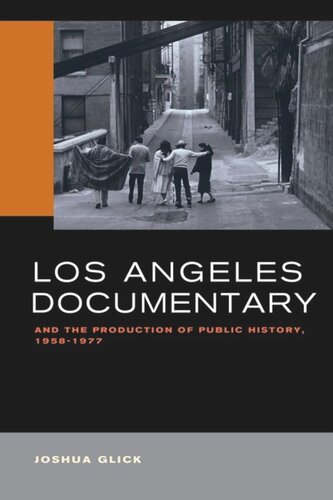

Most ebook files are in PDF format, so you can easily read them using various software such as Foxit Reader or directly on the Google Chrome browser.
Some ebook files are released by publishers in other formats such as .awz, .mobi, .epub, .fb2, etc. You may need to install specific software to read these formats on mobile/PC, such as Calibre.
Please read the tutorial at this link: https://ebookbell.com/faq
We offer FREE conversion to the popular formats you request; however, this may take some time. Therefore, right after payment, please email us, and we will try to provide the service as quickly as possible.
For some exceptional file formats or broken links (if any), please refrain from opening any disputes. Instead, email us first, and we will try to assist within a maximum of 6 hours.
EbookBell Team

5.0
110 reviewsLos Angeles Documentary and the Production of Public History, 1958–1977 explores how documentarians working between the election of John F. Kennedy and the Bicentennial created conflicting visions of the recent and more distant American past. Drawing on a wide range of primary documents, Joshua Glick analyzes the films of Hollywood documentarians such as David Wolper and Mel Stuart, along with lesser-known independents and activists such as Kent Mackenzie, Lynne Littman, and Jesús Salvador Treviño. While the former group reinvigorated a Cold War cultural liberalism, the latter group advocated for social justice in a city plagued by severe class stratification and racial segregation. Glick examines how mainstream and alternative filmmakers turned to the archives, civic institutions, and production facilities of Los Angeles in order to both change popular understandings of the city and shape the social consciousness of the nation.